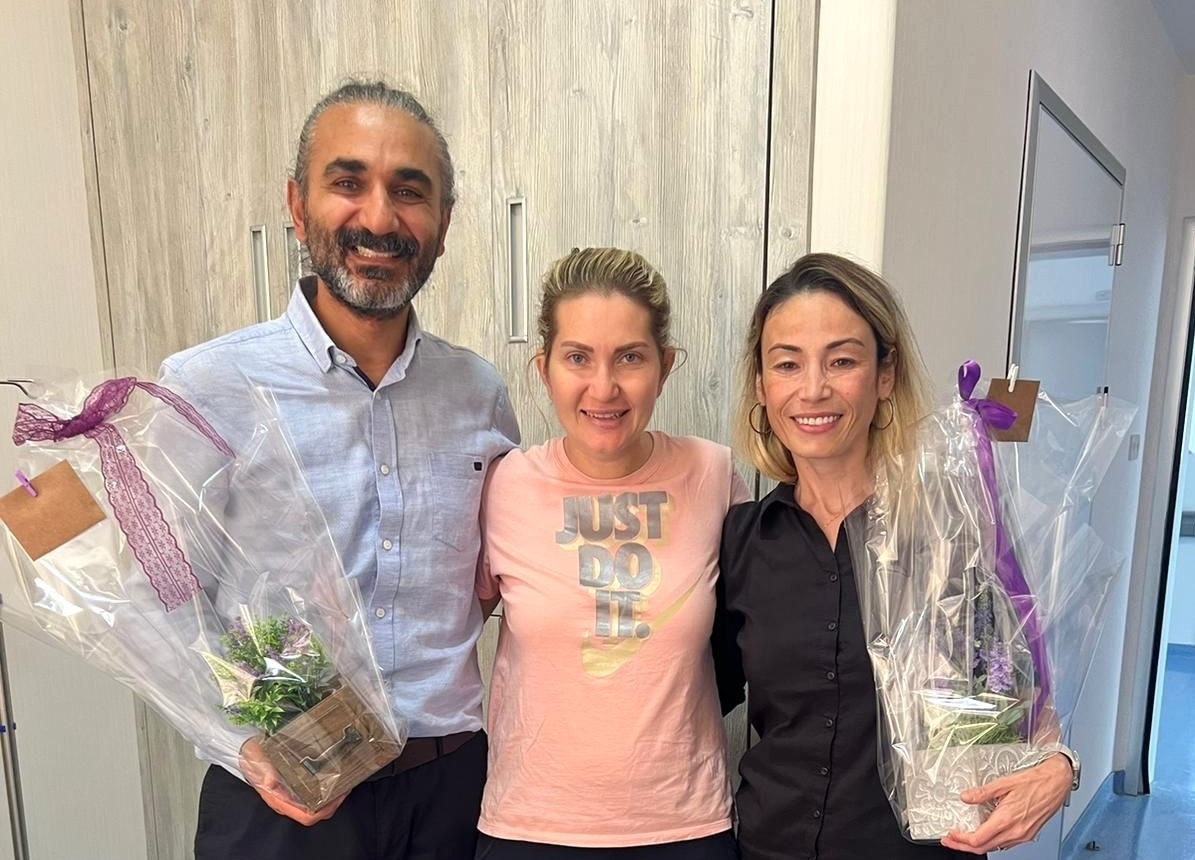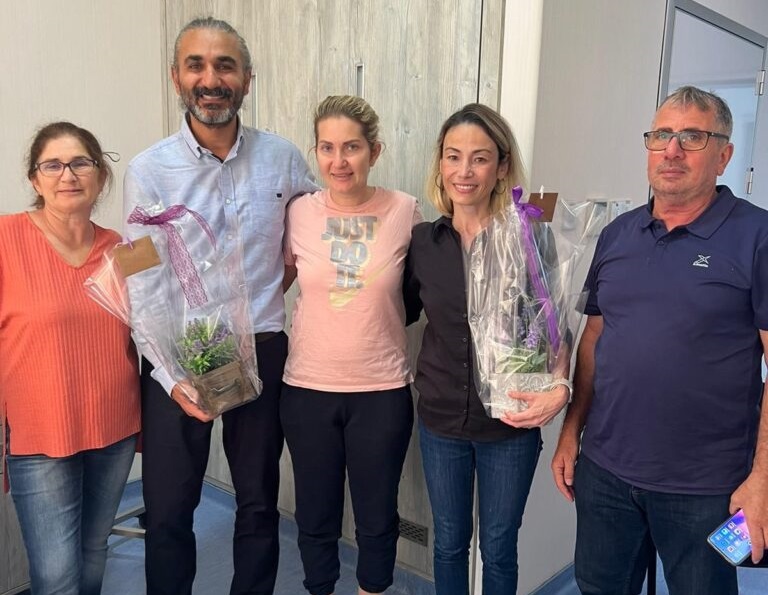
35-year-old Gözde Güçver Okur, who had clots in her veins several times in the last five years and most recently had a stroke, regained her health by closing the congenital opening between the heart chambers. Dr. Suat Günsel University of Kyrenia Hospital Cardiology Department Specialist Assoc. Prof. Dr. Elif İjlal Çekirdekçi warned, “In cases of unknown and recurrent clotting, it should be investigated whether there is a congenital opening between the heart chambers.”
Clots of unknown origin that form in the veins can cause stroke or more serious consequences. In patients with repeated clotting, this may be caused by congenital “openness between the heart chambers, PFO”. As a result of further examinations performed at Dr. Suat Günsel University of Kyrenia Hospital, it was determined that the problems of 35-year-old Gözde Güçver Okur, who had clots in her veins several times because she had not been diagnosed for the last five years and most recently had a stroke due to a clot in her brain vein, were caused by “congenital openness between the heart chambers”.
Dr. Suat Günsel University of Kyrenia Hospital Cardiology Department Specialist Assoc. Prof. Dr. Elif İjlal Çekirdekçi brought 35-year-old Gözde Güçver Okur back to health by closing the congenital opening between the heart chambers.

PFO can cause repeated clots in the veins!
Assoc. Prof. Dr. Elif İjlal Çekirdekçi explained the medical history of the patient as follows: “Our patient’s complaints first started 5 years ago with a clot in the artery that feeds the digestive system. Blood tests performed during this period revealed that he had a genetic tendency to clot. However, no detailed cardiological research has been conducted. Our patient recently had a stroke in another part of her body due to a clot in his cerebral vein. After this, the patient, who was transferred to Kyrenia University Hospital and where her treatment continued, this time had a clot in her pulmonary vein.”
Dr. Suat Günsel University of Kyrenia Hospital Neurology Department specialists requested a cardiological evaluation and it was determined that the problem causing the clot in the patient was an innate gap between the heart chambers. Assoc. Prof. Dr. Elif İjlal Çekirdekçi, who conducted the examinations and made the diagnosis, said, “As a result of the cardiological evaluations, we have clearly revealed the reason for the repeated clots in our patient. We are happy to cure our patient by successfully performing the PFO closure process.”
Assoc. Prof. Dr. Elif İjlal Çekirdekçi said that PFO (Patent Foramen Ovale) is a congenital opening between the heart chambers and that this opening should normally be detected during blood circulation during pregnancy. PFO is expected to close naturally and spontaneously immediately after birth. However, in some people, this opening does not close and remains ‘patent’ (open). PFO Closure is performed in patients suffering from this problem.”

PFO closure is an invasive procedure similar to angiography.
Assoc. Prof. Çekirdekçi said that they performed the PFO closure process without surgical intervention with a special device. Prof. Dr. Elif İjlal Çekirdekçi gave information about the PFO closure process: “During the PFO closure process, a thin tube (catheter) is usually entered from the groin area and directed to the heart. The catheter carries a device that is inserted into the opening between the heart chambers. This device is usually some type of closing device. These devices usually include a frame and special materials. The device is placed on both sides of the PFO. Then, the device is released and the PFO is closed.”
Assoc. Prof. Dr. Elif İjlal Çekirdekçi emphasized that it is generally not necessary to close PFO surgically and stated that surgery may be needed, especially in young individuals, in cases that recur and cause paralysis, or in cases where it triggers migraine attacks.